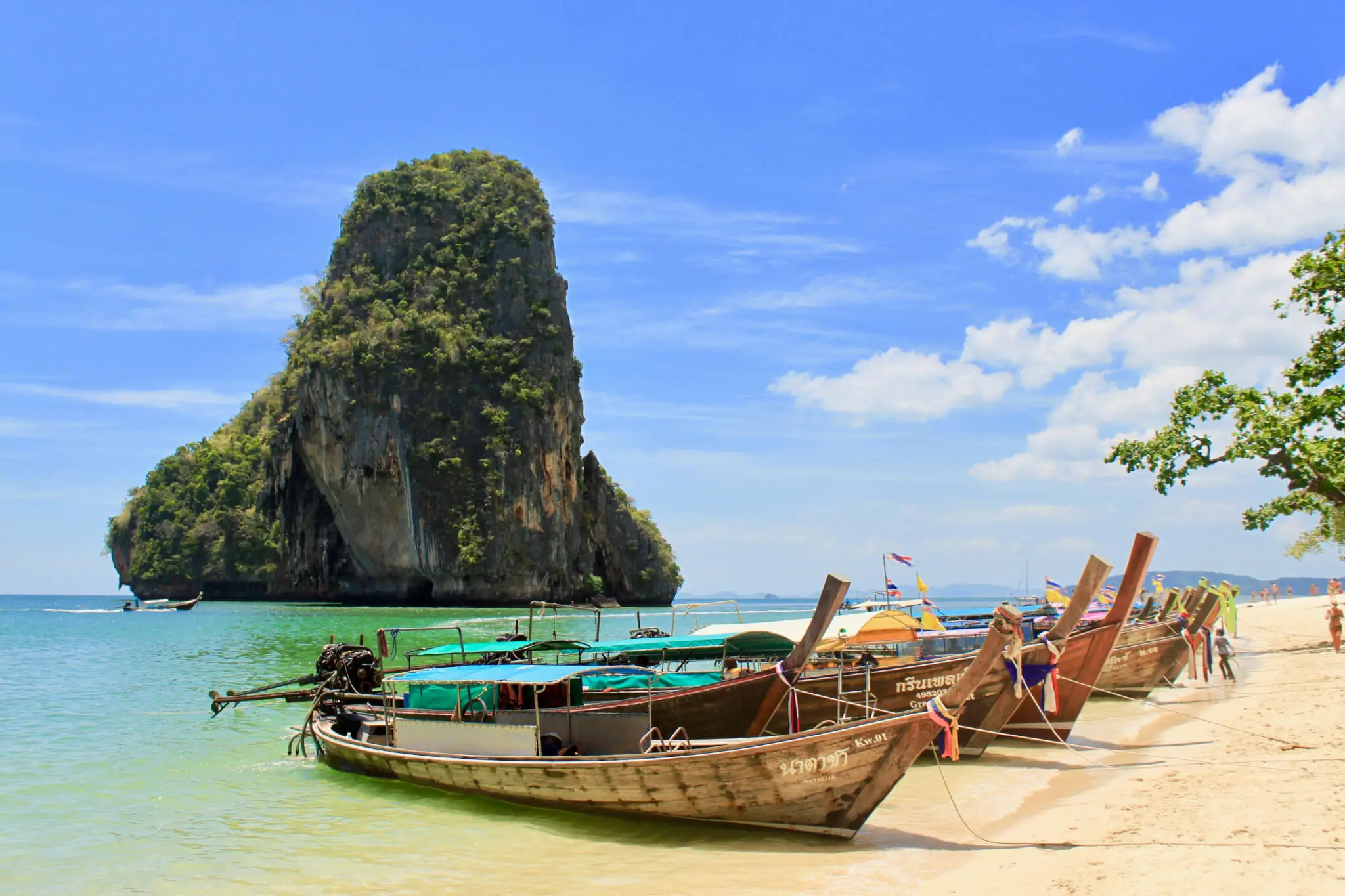“So, how many countries have you visited?”
Do you know your answer? For many travelers, this number is important. Some, like me, just like to keep track of and quantify the traveling we’ve done (you know I love a list!). Others are more serious or even competitive about their tally. For these folks, the number of countries they’ve visited is a measure of their own worth as a traveler, especially compared to others.
Although I would argue that the number of countries you’ve visited isn’t necessarily indicative of how well-traveled you are, you have to admit that there’s something pretty impressive about managing to cross a lot of them off your list. It takes a tremendous amount of time, energy, planning, resources, and ingenuity to see that much of the world, and it’s a privilege that many people aren’t able to enjoy.
It’s also fascinating to talk to people who have managed to visit places that are well off the beaten path. As much as I love swapping travel tales about popular destinations like Paris or Amsterdam, nothing compares to getting lost in someone’s stories about a place you’ve only dreamed about or never knew existed.
Fortunately, I’m lucky enough to have a wealth of those stories only a phone call or WhatsApp message away. My good friend Max is perhaps the most well-traveled person I know, with a current count of well over one hundred countries visited.

You may remember Max from his awesome Travel Career Snapshot about working at the Olympics. We first met while working as tour directors in Alaska and the Yukon, and eleven years later he’s still one of my favorite and most fascinating friends. Despite the pressures and busyness of running a thriving eco retreat in Costa Rica, he was kind enough to take some time to answer my burning questions about what it’s like to be a true world traveler.
There’s a lot to like about Max, but one of the things I love most is how he manages to remain humble, open-minded, and passionate about engaging authentically with people and their cultures. I hope that you enjoy reading this interview as much as I enjoyed conducting it, and that reading about Max’s experiences across the globe inspires you to seek out your next adventure!
Hi Max. We’ve already met you, but remind us who you are by telling us a little bit about yourself.
Hey Gwen! I’m currently living in Costa Rica running an eco retreat called Téva in Manuel Antonio, a beach town on the Pacific Coast. I originally hail from New York City, and I’ve lived all over the world and worked in everything from coffee shops and bars to cruise lines and the Olympics. I’ve also got a culinary magazine and an accounting business. Essentially, I’m in love with life and I can’t get enough of planet Earth!
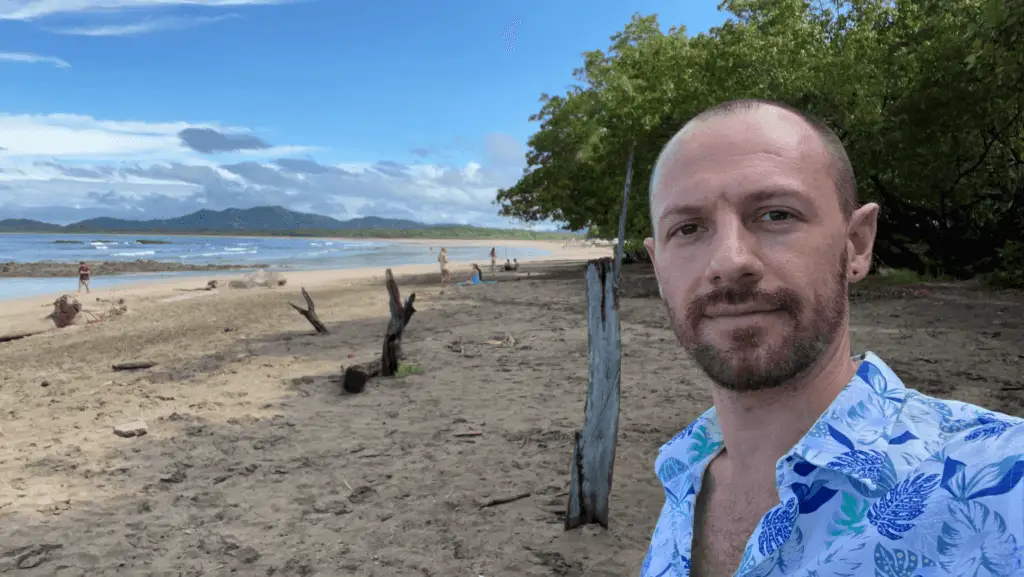
One of the many amazing things about you is the sheer number of countries you’ve visited. I won’t make you list them all, but what’s your current count?
112 so far! But many more planned.
How do you define “countries” or quantify the number of places you’ve visited?
There are two main ways of counting countries: 1.) If it’s recognized by the UN, or 2.) if it sees itself as an independent economic unit and effectively operates that way. I use the latter method, which allows regions that use their own currency, speak their own language, or have their own government to count as their own “country.” For example, I include Taiwan, Macao, and Puerto Rico, but not Catalonia.

Can you tell us a bit about how you’ve managed to do all this traveling? How have you financed your trips and arranged your time to be able to spend so much of it out of the country?
Every time I’m abroad I try to extend my trip to explore a bit more. I also try to use every opportunity I can to work or study abroad. In university, I studied abroad in China, and while I was there I spent about four months backpacking throughout Southeast Asia and India. During my MBA program, I spent a semester in South Africa. Before my classes started, I climbed Kilimanjaro in Tanzania and then traveled south by land. Before grad school, I did a volunteer program for a winter in Iceland. I’m always trying to be creative and find excuses to travel.
As for finances, travel can be very inexpensive. The biggest expense? Housing. The solution? CouchSurfing.com. I rarely pay for a place to stay when I travel on a budget. There’s always a cost-effective solution, whether it’s staying with friends or meeting new friends online or out and about. The next biggest expense? Flights. Solution? Travel by land or sea as the locals do. Buses and trains and boats. Bicycles and motorcycles. You’d be shocked at how cheap a rental car can be for a multi-month trip through Europe. Oh yeah – and learn to drive manual. You’ll save thousands of dollars.
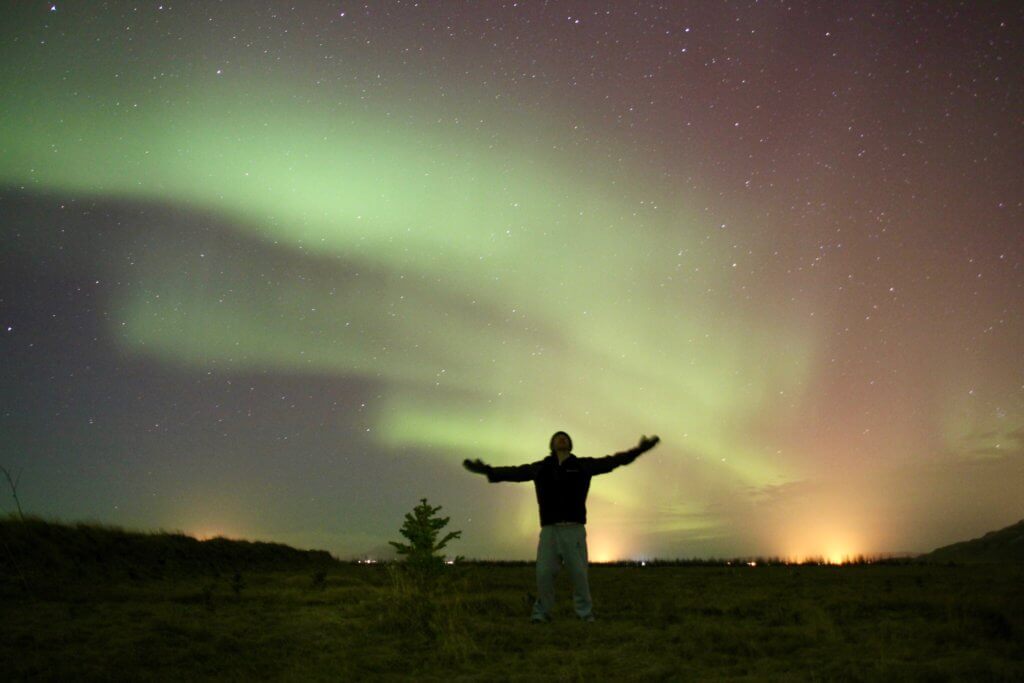
How do you decide where to go, and what does your planning process look like?
I’m an avid map reader. I have a keen sense of geography and I can conjure up the experiential flavor of different regions of the world like a true connoisseur. When I’m craving a specific experience, I plan a trip around that experience, often while trying to fill in gaps in regions I haven’t visited or that I don’t know well. I do a lot of reading and research to maximize my time.
As romantic as the idea is to land somewhere exotic without plans and just go with the flow, I find it quite irresponsible. If I have a limited timeframe and limited budget, I guarantee you I’m doing some extensive planning to make sure I don’t waste a single moment. My planning process always starts with a Google Sheet with a row for each day of the trip. I mark which days are weekends so I can be in more urban or social areas for the days that locals usually plan leisure activities and enjoy that with them. Then, I fill in a column for where I plan to spend each night, followed by a column for the things I plan to do during that day, and the method of transport required. I also have columns for expected budgets for lodging, meals, and activities for each day.
Don’t get the wrong idea, however, I still love spontaneity. The plans that I write down form the skeleton of the trip logistics. The rest is open for improvisation, and that’s often where the magic happens. There’s nothing wrong with planning time for having no plans. In fact, it’s a tried and true best practice that I highly recommend.
How would you describe your travel style?
I travel in search of authentic experience. I always try to meet locals, learn their language, try their food, listen to their music, and explore with them. I’m also a fast-paced traveler. While some like to create a nest and spend weeks or months getting slowly acquainted with a new place, I’m more the type to live out of a backpack and visit eight countries in three weeks. I don’t think this sacrifices authenticity; rather, it requires being fully engaged all the time. I find avoiding heavy drinking and late-night parties helps to make this realistic.

What places or travel experiences surprised you most and how/why?
Mexico City is an absolute gem, as is Mérida and I’m sure many more stunning cities and sites throughout Mexico. It’s a true shame we’re only recently discovering the world-class treasures south of the border.
The Arctic always makes me swoon. There’s nothing like an extreme ecosystem to make you feel alive and put that life into context as you witness geological time unfolding in front of you.
The absolute pleasure of sharing space with locals on a river boat in the Amazon for three weeks will ground and humble the most anxious citygoer.
And Africa. Everything about that continent and its myriad cultures, languages, religions, philosophies, wildlife, and landscapes is surprising. Until you go and immerse yourself, just assume that everything you assume about the continent is entirely wrong. You’ll be more than pleasantly surprised, you’ll be transformed.
Can you share one or two of your favorite stories from your travels?
Climbing Mount Kilimanjaro in Tanzania was one of the most memorable travel experiences for me. I marveled in the evolving landscape as it shifted from elephants on the savannah to massive glaciers on the summit over the course of a few days spent under a full galaxy of stars and with hearty meals cooked with love, accompanied by heartfelt group songs in Swahili. I traveled with a good friend named Michael from Austria, whom I had met while on a road trip through the Balkans and who later invited me to his wedding in Edmonton, Canada. I attended that wedding right after I returned to civilization from a 10-day, 100-kilometer trek across the fjords of Baffin Island in the Arctic with a French friend Rémi, whom I had met while on a solo motorcycle trip across Quebec, New Brunswick, and Nova Scotia to celebrate my 30th birthday.

Have you had any scary moments or close calls?
Oh, absolutely, and they typically happen in Turkic countries for some reason. In 2013, I found myself at the pressure release valve of Taksim Square in Istanbul right at the very moment that Erdogan’s government decided to crack down on student protesters. After twelve hours of running from helicopters hurling tear gas canisters and police in tanks assaulting pedestrians with water cannons, my family was very happy to hear that I was alive and well and on my way home the next morning.
There was also that one time my dear friend Dmitry and I found ourselves stuck in a summer blizzard atop a very isolated mountain on the border of Kyrgyzstan and China. We had no choice but to burrow into the snow and snuggle together for warmth until the next morning when the storm cleared and sunlight allowed us to dig out way out of the snow cave. We continued hiking through chest-deep powder until we made our way to a shepherd’s camp. We were fed a hearty, heartwarming lamb stew and spoiled with geothermal hot springs until we thawed enough to continue to the border of Kazakhstan. There, we discovered the native habitat of the cannabis plant which, as we discovered, grows for miles and miles along the roadways in the Kazakh steppe.
How do you feel that traveling this extensively has changed you or impacted your life?
It has been a world-class course in empathy and context. I find that I can now relate to most people that I encounter in a way that makes them feel comfortable knowing that I am not only not judging them, but that I also understand and respect the context of what they find important in life.
I no longer assume that anything about the way I grew up is normal or necessary. That makes a big difference, allowing me to be open to learning from others and appreciate beauty in a way that people who are less traveled may not have the context to notice.

What tips do you have for someone who wants to travel to less touristed, non-Western, or less developed destinations but might be a little afraid to step out of his or her comfort zone?
Be humble, be discreet, be respectful. Lower your expectations, raise your curiosity. Listen to your intuition. Study at least a few key phrases in the local language. If nothing else, learn how to say “Do you speak English?” in the local tongue, rather than asking it in English. Spread out your cash between different bags and wallets. If someone approaches you speaking English in a place where English is not the native language, assume they want something from you. It’s okay to say “no, thank you” in their language, and then ignore them until they leave you alone. If you see reports of locals specifically targeting tourists for crime or kidnapping, consider not going to that place. Avoid active war zones.
Aside from that, if you keep a low profile, you can relax because you are almost never the target. Even in the chaos in Turkey, I knew I was not a target, so I felt very safe.
What tips do you have for someone who wants to experience culture in an authentic way while traveling?
Stay with locals and let them show you around. Avoid hotels and other travelers who would keep you isolated from the local culture. Eat the food that locals eat. Use public transportation.

You do a lot of your traveling alone. Any tips for solo travelers?
Bring a book and a journal. Sketch. Be open to strangers talking to you and offering you their hospitality when it feels authentic. Accept help from strangers if you need it. If someone is trying to sell you something, it’s okay to say no and move on.
What’s next for you, once we can travel again?
My big goal is Iran. It’s been at the top of my list for years, but it’s still not quite the time. More realistically, I’ve got some trips coming up to Oregon, Japan, and China (I still work with the Olympics).
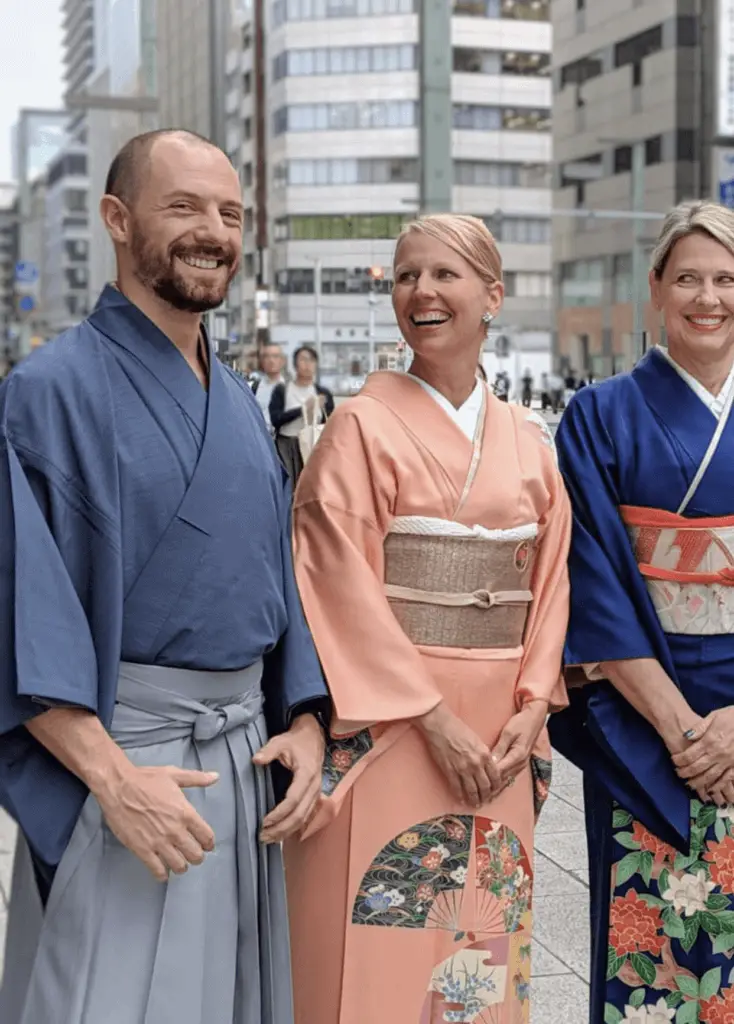
Anything else you’d like us to know about you, your travels, or living such a travel-centered lifestyle?
Travel can be many things. Just as it can be a liberating adventure that brings insight and love, it can also represent escapism and desperation. The solution to your problems cannot be found in the pages of a passport full of stamps, just as reading self-help books will not make you a better, happier person unless you have the courage to face your fears head-on and do the work.
Travel gives us context. It shows us beauty, with all of its rough edges and potholes. Travel is a privilege that not all of us have access to, but it has the power to enrich us in ways that can fill us with deep gratitude. If you allow that gratitude to inspire awe – at humanity, at the natural world, at the whole improbable but lusciously complex series of events that mark the path from creation to today – then, at the very least, travel can help you to appreciate the gift that is this life. It can make you cherish more deeply the moments we share with our loved ones. And if nothing else, if you have the discipline, it can get you off your couch, off Instagram, and out into the world to live to the fullest this one life we know we’re blessed to live!
Quick Hits:
Which countries/places would people be surprised to know you’ve visited? Paraguay, Botswana, North Dakota
Which would surprise people that you haven’t? Australia
What is your favorite “touristy” destination (someplace that’s super popular but well worth the trip)? Although it’s home, New York City.
What is your favorite place that’s off-the-beaten-path or under the radar? Slovenia
Where would you return in a heartbeat? Brazil
Which place(s) have disappointed you or do you not care to revisit? Belarus
Which country was the most challenging to get around/navigate? Philippines
Do you have a dream trip or bucket list destination? West Africa
No pressure here, but who has the best food on the planet? Oh, China, hands down.
What is one place everyone should see OR one travel experience everyone should have before they die? All of the national parks of the United States, including Alaska and the territories. Also, if you’re American, go visit the places your ancestors left behind to immigrate here.

Thanks so much, Max!
*Responses have been lightly edited for length and clarity. All photos were provided by Max.
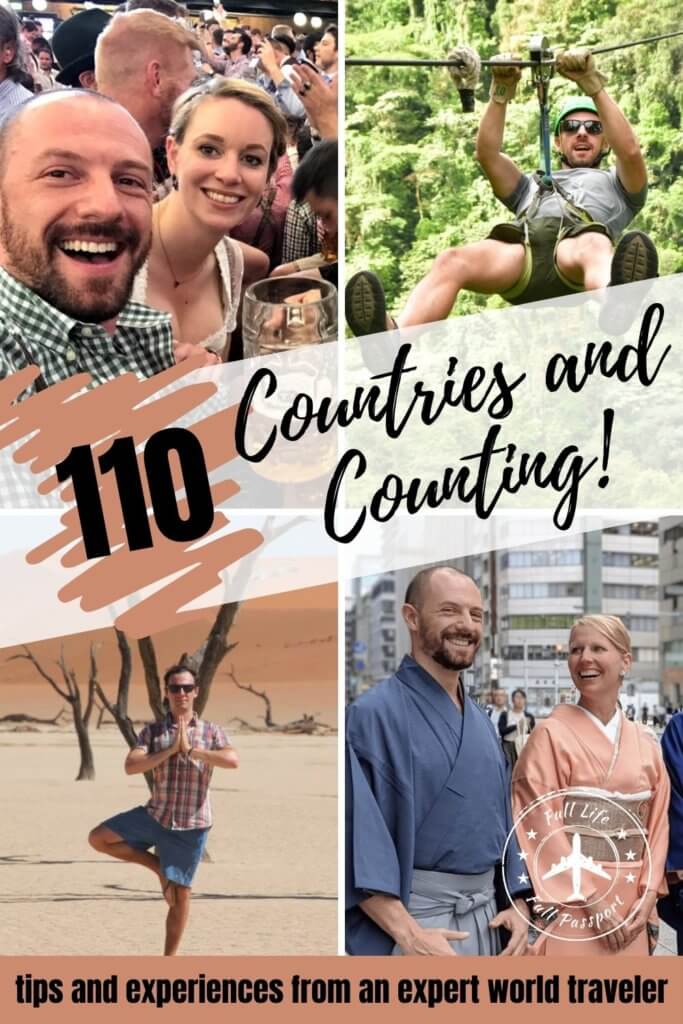
Like the post? Pin to save or share!
—
Read More:
50 States by 35: Reflections on a Travel Bucket List
25 Lessons from My First 25 Countries
Travel Career Snapshot: The Olympics
7 Ways I Travel Differently Now Than I Did in My Early 20’s
—
Need some help checking a few more places off your list? Full Life, Full Passport offers customized planning services for all kinds of vacations and budgets!
—
Want to be the first to know when a new post is published, or to receive exclusive content directly to your inbox? Join our email list!
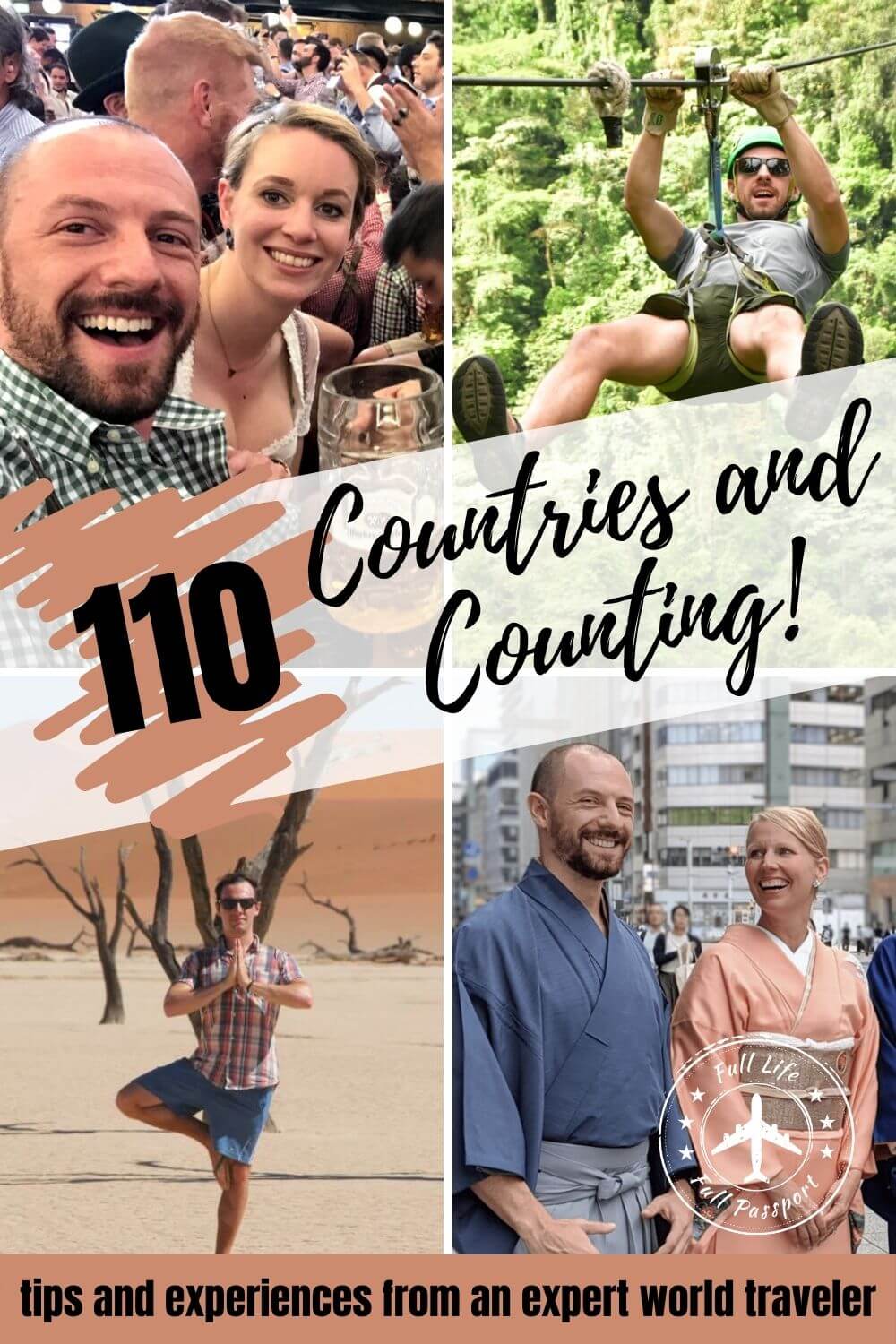

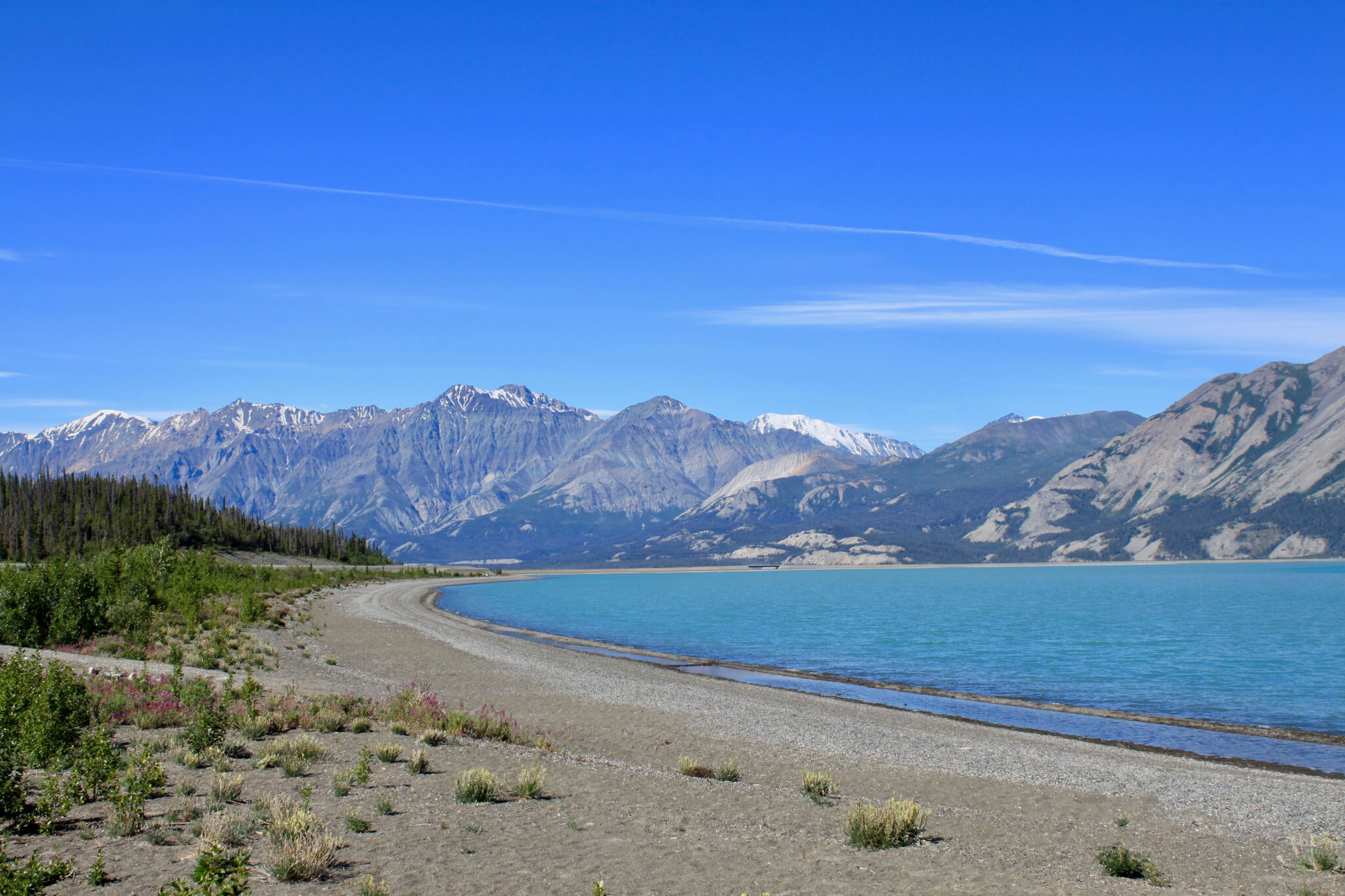 The Best 10-Day Itinerary for Canada’s Yukon Territory
The Best 10-Day Itinerary for Canada’s Yukon Territory